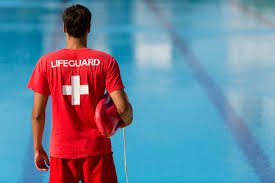
My friend Melissa Reeves, a long time school psychologist wrote today's blog. When I read her blog I couldn't help but think of the saying my son Ben shared with me when he was asked what was the most important thing he learned while getting his lifeguard certification a few summers ago... "the lifeguard is never supposed to drown." How true that statement is for lifeguards and many other first responders and caregivers. Thanks for sharing Melissa!
If you serve on a crisis team at the school or district level and/or you are a first responder, it is critical that you are given “permission” to take care of yourself
Early in our careers as school psychologists, we learned quickly that helping children cope with crisis events was hard work. While at times rewarding, the powerful emotions associated with traumatic circumstances took their toll. We often found ourselves experiencing some of the very reactions (both emotional and physical) that we observed among the students and staff we were charged with helping. Because the school community is full of other caregivers — teachers, administrators, volunteers, counselors, SRO’s, and parents — we know that school psychologists are not alone in experiencing vicarious trauma while helping others.
Consequently, throughout our careers we have recognized the importance of caring for the caregiver. In fact, we have come to believe that it is our ethical responsibility to take care of ourselves during times of crisis. Experience has taught us that helping others cope with traumatic events is not something even the most skilled and experienced caregiver can or should do 24/7.
Deliberate and frequent breaks from crisis intervention and caregiving are essential! What to do during such breaks is really up to the given provider, but it should be something that gives you a pleasurable break from the intensity of helping others. Give yourself permission to relax and enjoy a fun activity.
For each of us, respite often includes vigorous physical exercise or a relaxing dinner out with friends and family. What would be your pleasurable break? If you anticipate finding yourself in the position of helping a child or a community deal with trauma, be sure to give careful thought as to how you (and your colleagues) will take care of yourselves. How will you serve as a model for others that seeking help and support is ok.
If you would like to reach out to Melissa you can reach her at mereev@aol.com. Image courtesy of www.tabor.edu

 Employment
Employment News
News Online Store
Online Store Directions
Directions Delays/Cancellations
Delays/Cancellations


